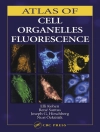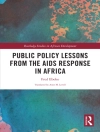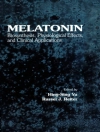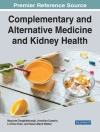The expanded second edition of this key clinical reference provides the most up-to-date and comprehensive review of oncologic emergencies. It covers the diagnosis and management of the full range of emergencies caused directly by cancer and/or treatment, including chemotoxicity, radiotoxicity and post-surgical complications, as well as transplant-related issues and toxicities of novel antineoplastic agents and the new immunotherapies. The book also shows how the entire spectrum of clinical medicine is brought to bear in the care of cancer patients in the unique setting of the emergency department (ED), from health promotion and prevention, to treatment and palliative care. Recognizing the multiple, overlapping contexts in which emergency care of cancer patients occurs, the book addresses clinically crucial interdisciplinary topics such as the ethics of ED cancer care, analgesic misuse and abuse, informatics, quality improvement and more. Finally, perspectives on care system and social forces that shape ED cancer care, such as cancer care disparities and care models, frame the book as a whole. Edited and written by world-renowned experts in emergency medicine and oncology, the Second Edition of Oncologic Emergency Medicine: Principles and Practice is the definitive resource for emergency physicians, oncologists, internists, family physicians, emergency nurses, nurse practitioners, physician assistants, and policy makers as well as pre and postgraduate trainees.
Tabla de materias
Part I Systems.- 1 Epidemiology.- 2 Models of Care.- 3 Informatics.- 4 Quality Measures.- 5 Patient Navigation.- 6 Nursing.- 7 Palliative Social Work.- Part II Prevention.- 8 Tobacco Control.- 9 Problem Drinking.- 10 Ionizing Radiation.- 11 Cervical Cancer Screening- 12 Lung Cancer Screening.- 13 Colorectal Cancer Screening.- 14 Melanoma Screening.- Part III Evaluation and Treatment.- 15 Acute Airway Obstruction.- 16 Central Nervous System.- 17 Pituitary Apoplexy.- 18 Spinal Cord Compression.- 19 Head and Neck.- 20 Ophthalmology.- 21 Cardio-Oncology.- 22 Superior Vena Cava Syndrome.- 23 Pulmonary.- 24 Venous Thromboembolism.- 25 Gastroenterology.- 26 The Acute Abdomen.- 27 Diarrhea.- 28 Constipation.- 29 Endocrinology and Metabolism.- 30 Renal.- 31 Urology.- 32 Gynecology.- 33 Orthopedics.- 34 Dermatology.- 35 Pediatrics.- 36 Hyperleukocytosis and Leukostasis.- 37 Bleeding and Thrombosis.- 38 Infectious Disease.- 39 Febrile Neutropenia.- 40 Neutropenic Enterocolitis.- 41 Sickle Cell Disease.- 42 Radiological and Nuclear Terrorism.- 43 Delirium.- 44 Suicide.- 45 Substance Abuse.- 46 Radiology.- 47 Ultrasound.- Part IV Toxicities.- 48 Chemotherapy Toxicity.- 49 Radiation Toxicity.- 50 Mucositis.- 51 Stoma Complications.- 52 Hematopoietic Cell Transplant.- 53 Toxicities of Novel Antineoplastic Therapies.- 54 Fluorouracil or Capecitabine Overdose.- Part V Palliative Care.- 55 Emergency Department Use at End of Life.- 56 Pain Management.- 57 Dyspnea in the Dying Patient.- 58 Cardiopulmonary Resuscitation.- 59 Palliative Surgery.- 60 Palliative Care.- 61 Hospice.- 62 Communication.- 63 Palliative Care Research.- Part VI Contextual.- 64 Ethics.- 65 Health Disparities.- 66 Emergency Oncology in the United Kingdom.- 67 Pain Management in Low-resource Settings.- 68 Curriculum Development.- 69 National and Institutional Research Efforts.- 70 COVID-19.- 71 The Physician and Cancer: In Their Own Words.- APPENDIX.
Sobre el autor
Knox H. Todd, MD, MPH
Chacras de Coria, Mendoza, Argentina
Former Professor and Founding Chair (retired)
Department of Emergency Medicine
The University of Texas MD Anderson Cancer Center, Houston, TX USA
Charles R. Thomas, Jr., MD
Oregon Health & Science University
Knight Cancer Institute
Department of Radiation Medicine
Portland, OR, USA
Kumar Alagappan, MD
The University of Texas MD Anderson Cancer Center
Department of Emergency Medicine
Houston, TX, USA












